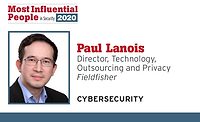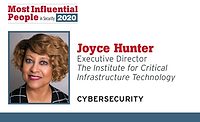Cybersecurity
Security's Most Influential People in Security 2020 - Kurt John
Chief Cybersecurity Officer, Siemens USA

As Chief Cybersecurity Officer, Kurt John is responsible for overseeing the development and implementation of cybersecurity strategy in Siemens’ largest market, the U.S. In this role, he oversees the coordination of cybersecurity for the enterprise’s products, solutions, services and infrastructure utilized to deliver value to Siemens USA’s customers.
John serves as a member of the Siemens Cybersecurity Board, working alongside international colleagues to set strategy, address global challenges and evaluate actions to secure new cybersecurity opportunities. John is a member of the Virginia Chamber of Commerce's Innovation & Technology executive committee and was recently appointed to Governor Northam’s Virginia Innovation Partnership Authority.
John has shared his expertise with many external bodies and consortiums including the National Institute of Standards and Technology (NIST), contributing to the cybersecurity standard used by U.S. Government agencies. He has also provided guidance on key metrics that help track and improve cybersecurity to the U.S. Government Accountability Office and provided input on cybersecurity legislations. He has informed the UN Under-Secretary-General’s office on the industry’s perspective in addressing global cybersecurity policy challenges, and worked with other large organizations including the Council on Foreign Relations and the University of Pennsylvania in communicating the importance of cyber norms for society.
John is a proponent of engaging sections of the workforce that are uniquely positioned to help address the cybersecurity skills gap. As a result, he has mentored several individuals and groups including Waukegan High School Students in the Chicago, Ill. area, teaching the importance of staying the course and how to face adversity. He has mentored Columbia University Masters students on applying what they have learned to the private sector and also mentored students from a variety of universities through the Atlantic Council on how to apply cyber policy to multi-national and geopolitical challenges. He also holds several professional certifications in the field of cybersecurity.
His advice to future security professionals is to think big, then think bigger. “All of our workstreams today are becoming more interconnected, and it is inevitable that a ripple in one area will impact another. We learn the skillsets and tools we need to approach our discipline methodically; however, your mindset should attempt to take in the broadest context with a predisposition to collaboration across multiple domains. Security, both cyber and physical, will always have overarching business impacts. The sooner we can anticipate and understand those impacts, the better off the business will be.”
Throughout his career, he is most proud of driving and implementing a collaborative culture that prioritizes proximity to his customers and responsiveness to needs. He says, “Technology and other aspects of our lives are moving so fast that we can sometimes feel overwhelmed. Strong cross-functional teamwork with an eye to the future is how we navigate the technological and ethical challenges we face. I believe that leaders in the field of cybersecurity need to emphasize collaboration, not only in their teams, but across all business functions to ensure we bring a myriad of perspectives to the table when taking on new challenges.”
Looking for a reprint of this article?
From high-res PDFs to custom plaques, order your copy today!






